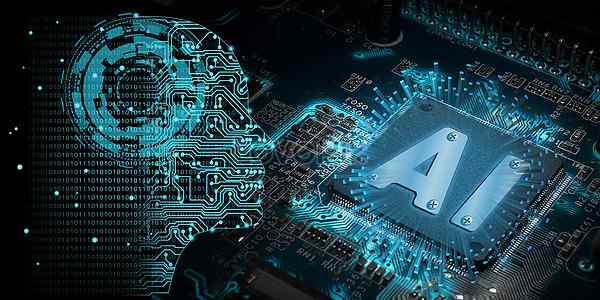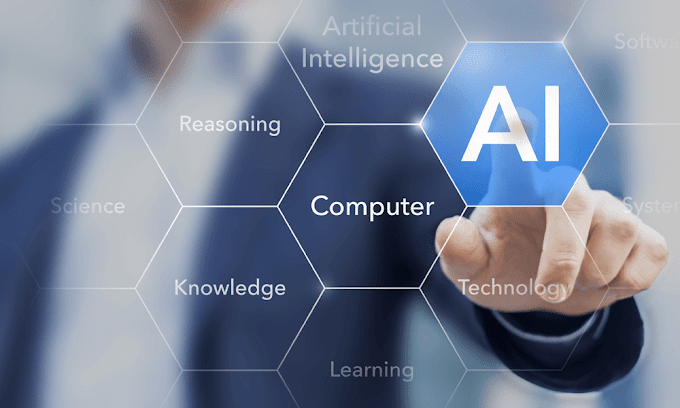AI (artificial intelligence)
Accenture delivers the latest insights, reports and guides on how AI can help you increase your business value.
What is AI (artificial intelligence)?
AI is a collection of a wide variety of technologies that enable machines to perceive, understand, act, and learn as if they were humans. AI is not a single technology, and the definition of AI varies from person to person.
Image source – Google| Image by,lovepik.com
Specialized AI ("weak" AI)
In some cases, AI is divided into "specialized AI" and "general purpose AI". Most of the AI services you experience in your daily life are specialized AI that performs a single task or a series of closely related tasks, such as:
Weather forecast app
Digital assistant
Software that analyzes data to optimize specific business functions
Specialized AI is very useful, but it has a limited range of uses and tends to be developed with a focus on increasing efficiency. But when applied correctly, specialized AI has immeasurable transformational powers that will continue to have a positive impact on people's work and lives on a global scale.
General-purpose AI ("strong" AI)
General-purpose AI is an image similar to the AI that appears in science fiction movies and has the ability of intelligent machines to imitate human intelligence, think strategically, abstractly, creatively, and handle various complex tasks. I will. In the real world, there are tasks such as data processing that machines are better at than humans, but there is no complete general-purpose AI that appears in movies yet. This is why human-machine collaboration is becoming more important. Today, AI is still just an extension of human capabilities and cannot replace humans.
Why is AI (artificial intelligence) important?
AI has the potential to revolutionize the relationship between people and technology, not just business, and has been expected for many years by both popular and scientific cultures. In the long history, why is AI utilization now reaching the critical mass, which is the turning point for market settlement?
Behind this is the maturity of many innovations, such as the development of cloud environments and the improvement of computing power, in addition to the rapid increase in data in recent years. With the environment required for AI in place, opportunities for introducing AI are expanding rapidly. Enterprises have access to more data than ever before and can take advantage of “dark data” within an organization that was never even recognized to exist. These treasure troves are driving the growth of AI.
Source of business value-proper utilization is a condition
For a long time, AI has been thought to have the potential to transform the business. Now that the environment needed for AI is in place, companies are beginning to see how AI can add business value. Automation reduces costs and brings a new level of consistency, speed, and scalability to business processes. In fact, some Accenture customers have reduced their working hours by 70%. But even more compelling AI capabilities are the ability to drive a company's business growth. The return on investment of AI for companies that have succeeded in full-scale utilization of AI is about three times that of companies that are struggling at the proof of concept (POC) stage. It's no wonder that 84% of corporate executives think that the use of AI is essential to achieving a company's growth goals.
Agility and competitive advantage
The benefits of AI are not just about streamlining operations and streamlining laborious work. With machine learning and deep learning, AI applications learn from input data and results in near real-time while analyzing data from a variety of sources and applying the results to critical business tasks with high accuracy. can. Product and service recommendation tools are a typical example. This ability to self-learn and self-optimize AI means that AI will continue to generate revenue.
In this way, AI regularly provides insights to drive innovation and competitive advantage in a world of constant disruption, enabling businesses to adapt quickly to this world. Successful full-scale use of AI is a key to achieving strategic priorities and a cornerstone for a company to survive. Three out of four corporate executives believe that "if AI isn't used throughout the business within the next five years, there's a risk of bankruptcy." Indeed, the success or failure of full-scale use of AI poses a huge risk to companies.
Benefits of AI (artificial intelligence)
There are many ways to define AI, but the most important point is to focus on "what AI can do".
End-to-end efficiency:
By leveraging AI, you can eliminate conflicts within your organization and improve your organization's overall analytics and utilization of human and physical resources, resulting in significant cost savings. You can also minimize downtime by automating complex processes and anticipating maintenance needs.
Improved decision-making accuracy: AI's rich analytical and pattern-predicting capabilities complement human intelligence to improve decision-making quality, effectiveness, and creativity.
Intelligent Proposal:
AI can propose various solutions with logic different from humans. This enables you to quickly discover market gaps and opportunities and deploy new products, services, channels, and business models with unprecedented speed and quality.
Reinforcement of employees:
Daily routine work is a specialty of AI. With AI doing the mundane tasks, employees will be able to spend their time on more fulfilling, high-value tasks. AI is projected to significantly improve labor productivity by radically transforming work styles, strengthening employee roles, and driving growth.
Superior Customer Service:
Continuous machine learning provides consistent, omnidirectional (360 degrees) customer insights needed for a personalized customer experience (hyper-personalization). From 24x7 chatbots to quick routing to help desks, companies can use AI to gather real-time information and deliver a fine-grained customer experience, which enables business growth, customer retention, and customer Promotes increased satisfaction.
AI is already being used in many ways, but it's important to remember that AI strategy is a business strategy. In order to maximize the return on investment in AI, it is important to clarify the business priorities and decide how to utilize AI for each issue.
The future of AI (artificial intelligence)
According to Accenture's report, AI: Built to Scale, 84% of executives believe that AI is essential to achieving a company's growth goals. I will. However, 76% said they are having a hard time using AI company-wide. Until now, there was no blueprint (blueprint) to move from proof of concept (POC) to full-scale introduction, and many people have had a hard time. At this turning point, which involves many difficulties, you need to implement all the steps necessary to make your business successful.
Define business value
There are innumerable ways to utilize AI. How should we decide what to focus on when introducing AI? For successful use of AI throughout your business, start by defining "what is the important business value for your company" and developing strategic goals. Next, we will evaluate various AI utilization methods for each strategic goal and set priorities.
Reorganize human resources
Restructuring with a diverse workforce is required to properly address and support the significant growth of AI. In the early days, some may hear concerns that AI and automation may rob humans of their jobs, but the future of AI depends on collaboration between humans and machines, restructuring and working with human resources. There is an urgent need for reform.
Build a governance and ethics framework
Companies should always develop their AI strategies with "trust" in mind. It is important to build an appropriate governance structure and ensure that ethical principles are reflected in algorithm and software development.
By properly reflecting all these factors in AI, you can derive the exponential value that AI brings and maintain the competitiveness of the market. AI is no longer a “good thing to have”, but an integral part of the future of business.





0 Comments